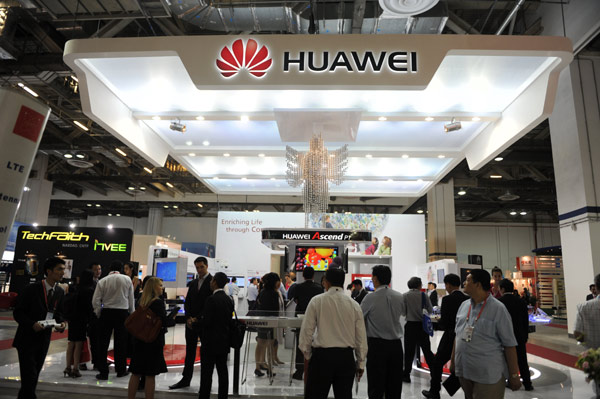China plugs into Indonesian phone mart
|
 |

Chinese companies are aggressively pushing for a bigger share in ASEAN's biggest communications market as it will have its dynamics swayed by new laws and the outcome of national elections set for 2014, reports Sudeshna Sarkar.
The town of Ubud in Bali may look like a sleepy idyll with its green, endless rice fields, emerald hills and the sacred monkey forest where lucky visitors may chance upon a chattering crab-eating macaque, but its entrepreneurs don't let grass grow under their feet.
By 10 am, Yasmin Robles has drawn up the shutters at Namus Ubud - her ice cream parlor, pizza place, coffee shop and, on bad weather days, a retreat from the scorching sun or pouring rain - ready for business. She has proclaimed the day's menu on her company's Facebook page for patrons to view and decide if they want to drop in for lunch.
"I use (Namus Ubud's) Facebook page to stay connected with my customers from other cities and abroad," the 38-year-old said. "And to inform local customers about my special products, events in Ubud, and sometimes, some words of wisdom."
She is not the only one to turn to social media to drive business. This land of 248 million people, the fourth most populated in the world, is also the second-largest user of Facebook and the fourth-largest user of Twitter.
By 2017, forecasts say mobile phone penetration will hit 173.5 percent with nearly 444.8 million subscribers in Indonesia, making it one of the largest markets in the Association of Southeast Asian Nations for mobile phone makers and equipment suppliers.
And Chinese companies are already present in Indonesia as "aggressive" sellers of information and communications technology products, vending to both fixed-line and cellular phone operators, said Juni Soehardjo, director, telecommunication, IT and media sector, at the Indonesian Chamber of Commerce and Industry.
The three major mobile phone operators are Telkomsel, the biggest with more than 100 million subscribers, Indosat with over 52 million users, and XL Axiata with approximately 45-50 million subscribers.
ZTE, which entered Indonesia in 1999 and has six regional offices besides its Jakarta headquarters, has been collaborating with all three, besides Telkom, which provides fixed lines and holds a majority stake in Telkomsel, and a host of other smaller operators.
The Chinese company takes pride in its green applications, which it said reduce power consumption by 90 percent and carbon emissions by 95 percent.
In April this year, China Telecom, China's biggest fixed-line operator, signed an agreement with Indonesian wireless-based services provider Smartfren Telecom to offer three months' network consulting services at Smartfren headquarters.
As part of the standard overseas expansion procedure, Chinese lender Industrial and Commercial Bank of China has ICBC (Indonesia), which works with companies like China Telecom and China Communications Services (Indonesia) in Jakarta to further Chinese enterprises' globalization bid.

























